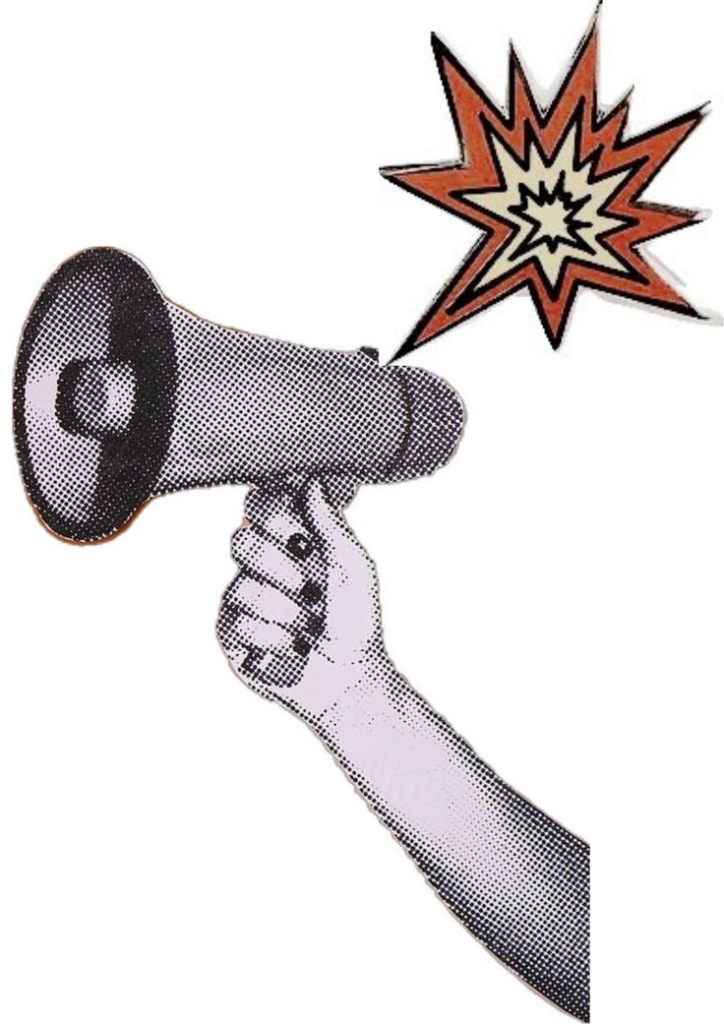
Cancel culture started out as a digital megaphone for justice. Someone says something offensive? Did they do something out of line? Social media to the rescue. The goal was simple– accountability. But somewhere along the way, the mission got blurry. What began as a call for change now feels more like a 24/7 port, where everyone’s fighting for a chance to call someone out first.
The instinct to “cancel” isn’t new. Long before hashtags and trends, people used boycotts to stand up for what’s right. The Montgomery Bus Boycott of 1955 (yes, I’m taking you back in history) is a perfect example– when Black residents in Alabama refused to ride the city buses until segregation laws changed. That year-long protest hit the city’s finances and helped launch the civil rights movement. This boycott proved itself to be effective because it was organized, strategic, and tied to clear goals—changing policies, not just punishing people.
Today’s cancel culture borrows that same blueprint, but speeds it up. One viral post, one out-of-context clip, and someone’s whole life can plummet overnight. No conversation about it. No room to explain. Just digital exile. A new age banishing if you will. What used to take months of planning now takes one trending post. The problem with this? Without strategy or an endgame, it often burns hot and fades fast. The Target boycott is a perfect example—it’s working, but what’s next? What happens after it all dies down? Who follows through to make sure the energy turns into real change? Too often, we stop at outrage and never reach resolution. We rally for accountability, then lose interest before we see impact. In the process, we turn something that could’ve made a difference into just another form of entertainment.
The Cancel List: From Celebrities to Everyday People
We’ve seen it happen to celebrities and brands alike. Kanye, Reality tv stars, Ellen DeGeneres, Victoria’s Secret, Amazon, Target– the internet decides who’s “in” or “out” for the week, and the verdict spreads faster than the facts ever do. Some of these cancellations call out real harm and spark crucial conversations that genuinely cause change. But too often, the emotions can lead to lost focus and turn what could’ve been real change into a spectacle for likes and views.
Everyone’s digging for “receipts,” especially of old mistakes. That makes people perpetually anxious about everything they’ve ever posted.
And what gets me and one of my girlfriends I was just talking to is that– it’s not just famous people anymore. The internet is cancelling regular people, teachers, students, small business owners, mothers, fathers– anyone is vulnerable to getting canceled for a single mistake that goes viral. A bad tweet resurfacing from the past, a misinterpreted photo, or A PIECE of a video clip can really affect someone, their job, family, friends, and their reputation. We’ve made it too easy to destroy someone’s life from behind a screen.
Take Love Island contestants for example– they have visibility, but they’re not major public figures (before the show) with PR teams. So when one thing blows up, there’s less protection and context. Just being on a show, being seen with someone, having old content dug up—these people didn’t sign up for every part of their past to be scrutinized decades later. The Love Island example just shows someone tries to say sorry, owns up, but the damage (exits, threats, public shaming) still happens fast. Even after the accountability and apologies.
The emotional and reputational toll is real. It’s not just likes and shares; people can lose relationships, mental health starts to suffer, and families get dragged in.
What I find even messier, is how inconsistent it all is. People pick and choose who gets canceled. Some celebrities recover overnight while others disappear forever. The same rules don’t apply to everyone. It’s less about morality and becomes more about popularity. Who’s “cancelled” depends on who the internet likes more that day.
Canceling by Association
We’ve even reached the point where people get canceled by association. That just gives “if you’re friends with them, then we can’t be friends” vibes. Follow the wrong person, be seen with the wrong person or crowd, or simply stay silent– it doesn’t go unnoticed and now you’re labeled guilty too. The same applies for families. Love Island USA season 7 contestant Cierra Ortega’s family reported online threats and harassment, showing how intense the fallout can be for “everyday” people in the reality-TV spotlight.
There’s no space for nuance, growth, or understanding. The internet treats silence as complicity and imperfection as evil.
When Cancel Culture Goes Too Far
The problem isn’t accountability– it’s the execution. Cancel culture often starts with valid frustration, but somewhere along the line, it stops being about change and starts being about pure punishment. The only thing that seems to satisfy people is seeing someone completely torn down. But what happens after that?
Cancel culture can hurt people who genuinely made mistakes, maybe out of ignorance or youth. Are they really as bad as people who’ve caused long-term harm? Is there proportionality?It puts public shaming over real change. Sometimes the spectacle becomes more important than correcting wrongs. The lowest moment becomes the moment people want to hold like a trophy.
Because there’s often no path forward, canceled people can end up exiled socially and professionally—sometimes forever—rather than being helped to learn, grow, or make restitution.
There’s no roadmap for redemption. Once you’re canceled, that’s it. You’re banished from society forever– no endgame, no forgiveness, no coming to good terms. The idea of growth or learning from a mistake gets lost in the chaos. But real accountability should always leave room for redemption.
We can’t demand change from people and then refuse to let them change. It doesn’t make sense. If the goal is to build a better society, there has to be space for people to learn, reflect, and become the version we were looking for all along. Let apologies matter, let people show they’ve learned. Not everyone who effs up deserves a lifetime sentence.
Drama or Change?
Cancel culture could have been a force for real social progress– but right now, it’s more drama than change. We cancel people who make human mistakes while the ones truly doing harm are walking free. It’s a distraction. We confuse accountability with humiliation.
It’s time to rethink what accountability really means. Calling someone out should lead to education, growth, and resolution– not destruction. If the goal is to make things better, then cancel culture as we know it is missing the point. Re-focus on change: policies, culture, systems—not just punishing individuals. If we want leverages that last, we need to redirect some of the outrage into solutions.
Maybe it’s not about canceling people at all. Maybe it’s about creating a culture where people can actually come back better.
xo, Hannah

I feel like people are less concerned about accountability these days and more so crucification of that person without any next steps. Almost like a scarlet letter!
Love this line – We can’t demand change from people and then refuse to let them change.
I think the truth is that people demand change to feel morally superior but don’t actually want the change to happen because then they no longer get to feel morally superior. Some people can only feel good as long as there’s someone to look down on